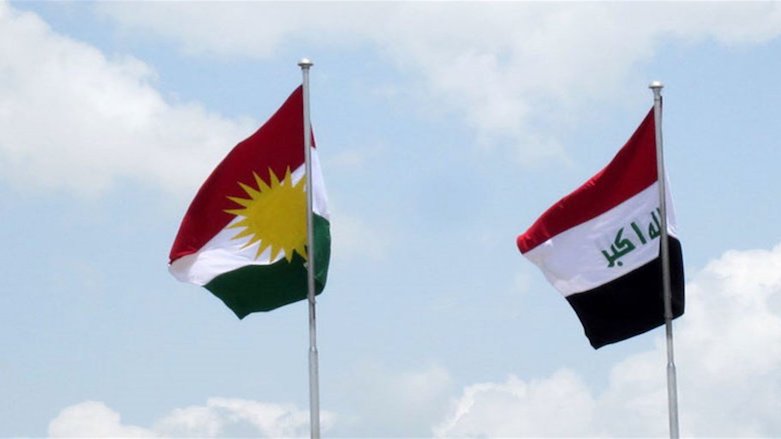Kurdish officials, lawmakers reject rumors of KRG budget cut by Iraq

ERBIL (Kurdistan 24) – Kurdish officials have denied rumors the Iraqi government is prepared to cut the Kurdistan Region’s national budget share, underlining that Baghdad will continue to distribute the salaries of public employees on time.
Some Kurdish lawmakers recently relayed to local media threats that Baghdad would cut the salaries of Kurdistan Regional Government (KRG) employees because the KRG has not handed part of its oil export to Iraq’s state oil marketing company – SOMO – based on an article in the country’s 2019 budget bill.
After a majority vote in the Iraqi Parliament on Jan. 24, lawmakers approved Iraq’s 2019 budget bill following months of disagreements between different parliamentary blocs.
According to the law, the KRG must hand over 250,000 barrels of oil per day to SOMO as well as pass local revenues to Iraq’s treasury. The Kurdish government has yet to implement the oil article.
So far, Iraqi government officials have issued no comments about a cut in the monthly salaries for KRG public servants.
Bashid Haddad, the deputy speaker of the Iraqi Parliament, told reporters in Baghdad on Tuesday that some lawmakers are trying to stir animosity among the KRG’s public servants regarding the payment of their future salaries.
“I reassure the people of the Kurdistan Region that Iraq will continue to distribute their salaries every month just like other cities in Iraq,” Haddad said.
“The Iraqi government has delivered the salaries of KRG employees to the Kurdistan Region for the past three months and will continue to do so,” he added.
“It’s true. The KRG has not handed a portion of the oil export to Baghdad yet, but if the federal government wanted to cut salaries, they would have done so in the last three months.”
Budget, oil, and disputed territories have been one of the long-standing issues between Erbil and Baghdad since the fall of the authoritarian system in Iraq in 2003. KRG officials are hopeful they can resolve the disputes with the new federal government headed by Prime Minister Adil Abdul-Mahdi.
Hevidar Ahmed, a lawmaker in the Kurdistan Region Parliament, told Kurdistan 24 that a high-level delegation from the KRG Council of Oil and Gas would visit Baghdad soon to eliminate uncertainties and doubts about the budget cut rumors.
Fuad Hussein, the Deputy Prime Minister of Iraq and Minister of Finance, explained that the salaries of KRG employees are part of the 2019 budget law, and the Iraqi government has a responsibility to implement that law.
“There is no threat to the salaries of KRG employees,” he told Kurdistan 24, noting that both Erbil and Baghdad have to begin their negotiations soon, particularly a dialogue about the handover of part of the KRG’s oil export to SOMO.
Hoshyar Abdullah, a Kurdish lawmaker in the Iraqi Parliament, suggested there is a “political move” in the parliament led by former Iraqi prime minister Haider al-Abadi to use the Kurdistan Region’s files, namely the oil case, against current Prime Minister Abdul-Mahdi and destabilize his tenure.
“Abadi remains ambitious about the possibility of returning to his post as prime minister,” Abdullah told Kurdistan 24.
Ties between Erbil and Baghdad reached a breaking point in late 2017 after the Iraqi government, headed by then-prime minister Abadi, used military force to attack the Kurdistan Region in the wake of a historic independence referendum.
Since Abdul-Mahdi took office in October 2018, tensions between Erbil and Baghdad have eased, and relations have considerably evolved. Kurdistan Region Prime Minister Nechirvan Barzani has repeatedly expressed his strong support for Abdul-Mahdi and his cabinet.
Most Kurdish officials and lawmakers are hopeful of Abdul-Mahdi’s capability and desire to resolve disputes between Erbil and Baghdad peacefully, unlike his predecessor.
In a recent tweet, Hoshyar Zebari, Iraq’s former foreign affairs and finance minister, charged that Abadi’s “anti-Kurdish policies” by “ill-advised” local and international advisors cost him a second term in office.
Former PM #Abadi anti Kurdish policies has cost him a second term by ill-advised local & int advisors. Now he is advocating same position to get back at #Iraq PM @AAMahdi cost over #KRG fair & legitimate budget needs . It is too late & hard luck.
— Hoshyar Zebari (@HoshyarZebari) March 24, 2019
Abadi is now “advocating [the] same position to get back at” Abdul-Mahdi over the KRG’s “fair and legitimate budget needs.”
“It is too late & hard luck,” Zebari wrote.
Editing by Karzan Sulaivany
